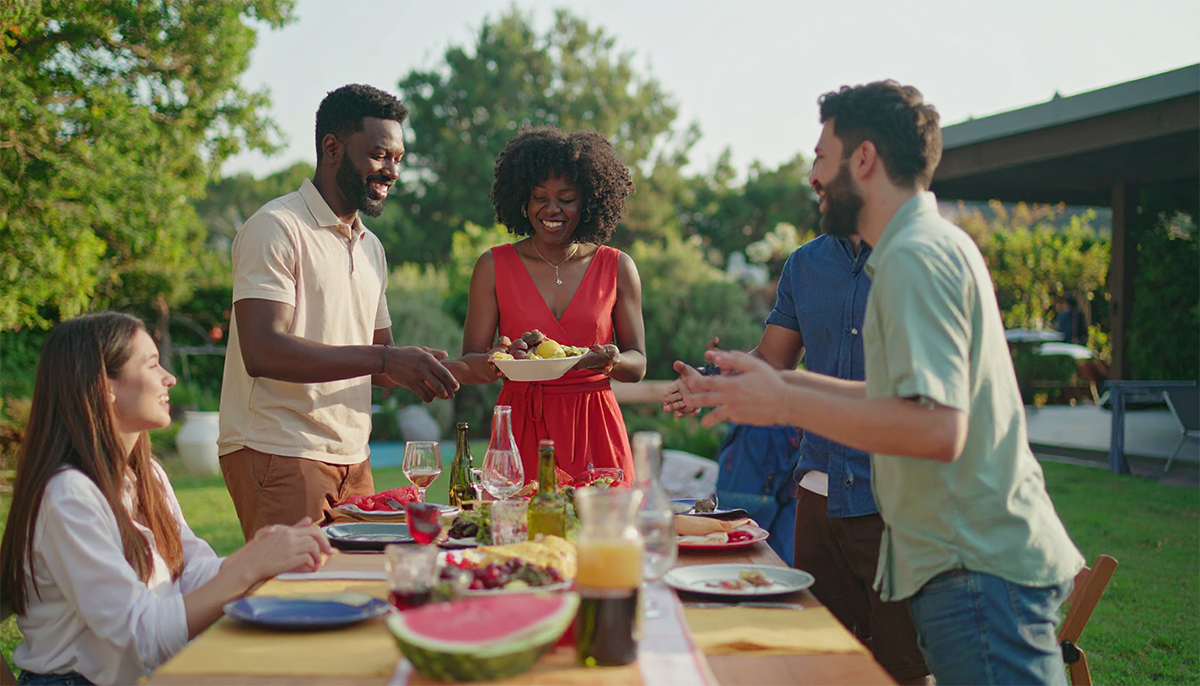8 Proven Ways to Make Friends as an Adult
8 Proven Ways to Make Friends as an Adult
Making friends as an adult feels like trying to solve a puzzle with half the pieces missing. You know you need social connections, but between work, family obligations, and the general exhaustion of adult life, finding the time and energy to build new friendships seems nearly impossible. Add in the awkwardness of not knowing how to naturally meet people outside of work or dating apps, and it’s no wonder so many adults feel socially isolated.
The truth is, adult friendship requires more intentionality than the effortless connections you made in school or college. You can’t just wait for friendships to happen naturally anymore – you have to actively create opportunities for meaningful connections. But here’s the good news: once you understand how adult friendships actually develop, the process becomes much more manageable and a lot less intimidating.
Research shows that it takes approximately 200 hours of interaction to develop a close friendship, which explains why adult friendships feel harder to form – you need consistent, repeated contact with the same people over time. The key is creating systems and opportunities for those repeated interactions to happen naturally.
1. Join Activity-Based Groups Around Your Interests

The secret to making adult friends isn’t networking events or forced social situations – it’s finding people who already share your interests and values. When you join groups centered around activities you genuinely enjoy, friendship develops organically through shared experiences rather than awkward small talk about the weather.
Think about what you actually enjoy doing, not what you think you should enjoy. Are you into hiking, book clubs, photography, cooking, board games, volunteering, or learning new skills? There’s probably a group for it in your area, and if there isn’t, you can start one. The beauty of activity-based friendships is that you already have built-in conversation topics and regular reasons to hang out.
The key is showing up consistently to the same group or activity. Casual acquaintances become friends through repeated exposure and shared experiences. You don’t need to be the most outgoing person in the room; you just need to be reliably present and genuinely interested in the activity.
Activity-Based Friend-Making Strategies:
- Search Meetup.com for groups related to your hobbies
- Join recreational sports leagues or fitness classes
- Take classes at community colleges or community centers
- Volunteer regularly for causes you care about
- Join religious or spiritual communities if that aligns with your beliefs
- Participate in neighborhood associations or community gardens
Building Connections Through Shared Activities
The magic happens in the conversations before and after the main activity. Show up a few minutes early and stay a few minutes late to chat with other participants. Ask people about their experience with the hobby, how they got started, or what they like about it. These natural conversation starters are much easier than trying to think of topics from scratch.
Don’t put pressure on yourself to become best friends with everyone immediately. Focus on enjoying the activity and being a friendly, consistent presence. Some connections will naturally develop into deeper friendships over time.
2. Be Strategic About Your Work Relationships

You spend more waking hours with coworkers than anyone else in your life, so it makes sense to cultivate some of those relationships beyond just professional interactions. The key is being intentional about moving workplace acquaintances into friend territory without making things weird at the office.
Start by identifying coworkers you genuinely enjoy talking with and who seem to share similar interests or values. Pay attention to who makes you laugh, who you find yourself having longer conversations with, or who you’re curious to know more about outside of work context. Not every coworker needs to become a friend, but one or two solid friendships can significantly improve both your work experience and social life.
The transition from coworker to friend usually happens gradually through casual invitations that extend your interactions beyond the office. This might mean grabbing coffee before work, meeting for lunch away from the office, or attending after-work events together. The goal is creating space for more personal conversations and getting to know each other as whole people rather than just professional roles.
Workplace-to-Friendship Transition Steps:
- Suggest coffee meetings or lunch away from the office
- Invite coworkers to after-work activities or events
- Share appropriate personal stories and interests during breaks
- Ask about their lives, hobbies, and interests outside of work
- Organize group activities like happy hours or group fitness classes
- Follow up on personal things they’ve shared in previous conversations
Maintaining Professional Boundaries
The trick to workplace friendships is maintaining appropriate boundaries while still building genuine connections. Keep personal drama and complaints about work separate from your friendship interactions. Focus on shared interests and positive aspects of your relationship rather than bonding primarily over work stress or office gossip.
Be mindful of workplace dynamics and avoid creating exclusive friend groups that might alienate other colleagues or affect team dynamics.
3. Leverage Technology and Apps Designed for Friendship

Just like dating apps revolutionized romantic connections, friendship apps are making it easier to find like-minded people in your area who are also looking for new friends. Apps like Bumble BFF, Meetup, and Friender use similar matching systems to connect people based on shared interests, location, and friendship goals.
The advantage of friendship apps is that everyone using them is explicitly looking to make new connections, which eliminates the guesswork about whether someone is interested in being friends. You can be upfront about wanting to expand your social circle without feeling awkward or presumptuous.
Success with friendship apps requires the same principles as successful online dating: create an authentic profile that showcases your real interests, be proactive about reaching out to potential connections, and suggest meeting in person relatively quickly to see if there’s real compatibility beyond the digital interaction.
Digital Friend-Making Strategies:
- Create authentic profiles on friendship apps that showcase your real personality
- Use location-based features to find people nearby
- Join online communities related to your interests before meeting in person
- Participate in virtual events and activities to practice social skills
- Follow up consistently with people you connect with online
- Suggest low-pressure in-person meetups like coffee or group activities
Making Online Connections Real
The goal of digital platforms is to facilitate real-world connections, not replace them. Once you match with someone or find people through online groups, suggest meeting in person for casual, public activities. Coffee dates, group events, or activity-based meetups work better than lengthy one-on-one dinners for initial friend meetings.
Don’t get discouraged if not every online connection translates to real friendship. Like dating, friend-making through apps requires meeting several people to find genuine compatibility.
4. Become a Regular at Local Establishments

Becoming a familiar face at places you enjoy creates natural opportunities for casual conversations and connections with both staff and other regulars. Whether it’s a coffee shop, gym, bookstore, farmer’s market, or local bar, showing up consistently at the same times allows relationships to develop organically over time.
The key is choosing places that align with your authentic interests and lifestyle rather than forcing yourself to hang out somewhere just because it seems social. If you’re not a bar person, don’t try to make friends at bars. If you love coffee and reading, become a regular at a cozy coffee shop where you can genuinely enjoy spending time.
Staff members at your regular spots can also become valuable connections who introduce you to other regulars or let you know about events and activities happening in the space. Building friendly relationships with bartenders, baristas, bookstore employees, or gym trainers creates a social network that extends beyond just customers.
Regular-Spot Networking Tactics:
- Visit the same places at consistent times to see familiar faces
- Engage in brief, friendly conversations with staff and other regulars
- Participate in events or activities hosted by your regular spots
- Bring books, laptops, or other conversation starters when appropriate
- Be genuinely interested in the people and place rather than just networking
- Offer to help with events or activities when opportunities arise
Quality Over Quantity Locations
Focus on becoming a true regular at 2-3 places rather than spreading yourself thin across many different establishments. Deep familiarity with a few spots allows for stronger relationships and better opportunities for meaningful connections.
Choose places where you can comfortably spend time alone, so your presence feels natural rather than forced or desperate for social interaction.
5. Reconnect with Old Friends and Expand Their Networks

Sometimes the best way to make new friends is through people you already know and trust. Reconnecting with old friends, distant relatives, or former coworkers can reignite relationships that may have faded due to life circumstances rather than any fundamental incompatibility.
Reach out to people you’ve lost touch with but genuinely liked and see if they’re interested in rekindling the friendship. Many people are dealing with the same adult friendship challenges you are and would welcome the opportunity to reconnect. Don’t let embarrassment about lost time prevent you from reaching out – most people are understanding about how life gets busy.
Once you’ve reconnected with existing friends, they become valuable sources for meeting new people through their own social networks. Friends of friends often make great connections because you already have built-in commonalities and mutual social proof.
Reconnection and Network Expansion Strategies:
- Reach out to old friends through social media or text
- Attend reunions, weddings, and social events when possible
- Ask current friends to introduce you to their other friends
- Suggest group activities that include multiple friend groups
- Be open about looking to expand your social circle
- Host gatherings that bring together different groups of people
Hosting as a Friendship Strategy
Becoming the person who organizes gatherings gives you control over creating the social opportunities you need while providing value to others who also want more social connection. Host casual game nights, potluck dinners, movie nights, or seasonal gatherings that bring people together in low-pressure environments.
You don’t need a perfect house or expert hosting skills – the goal is creating opportunities for people to connect, not impressing anyone with your entertaining abilities.
6. Practice the Art of Following Up

The biggest difference between successful adult friend-makers and those who struggle is consistency in following up after initial connections. You might meet someone interesting at an event, have a great conversation, exchange contact information, and then… nothing. The friendship dies because neither person takes responsibility for maintaining momentum.
Adult friendships require intentional follow-up because everyone’s lives are busy and chaotic. Don’t wait for the other person to reach out first or assume they’re not interested if they don’t immediately suggest hanging out again. Many people want to build friendships but are shy, overwhelmed, or simply bad at taking initiative.
The follow-up doesn’t need to be elaborate or perfect. A simple text referencing something you talked about, sharing a relevant article or meme, or suggesting a specific activity shows that you’re interested in continuing the connection. The key is doing it within a few days while the interaction is still fresh in both your minds.
Effective Follow-Up Techniques:
- Text within 24-48 hours referencing something specific from your conversation
- Share articles, memes, or information related to shared interests
- Suggest specific activities with concrete dates and times
- Follow up on things they mentioned they were dealing with or excited about
- Invite them to events or activities you’re already planning to attend
- Be consistent in your communication without being overwhelming
Creating Friendship Momentum
Think of new friendships like starting a fire – they need consistent attention and fuel in the early stages to become self-sustaining. This means regular (but not overwhelming) contact, suggesting concrete plans, and showing genuine interest in their life and experiences.
Don’t get discouraged if some people don’t respond or seem less interested than you initially thought. Focus your energy on the connections that show mutual interest and enthusiasm.
7. Be Genuinely Interested in Others

The fastest way to build connections with new people is to become genuinely curious about their lives, experiences, and perspectives. Most people are starved for authentic interest and attention, so someone who asks thoughtful questions and remembers details from previous conversations immediately stands out as potential friend material.
This isn’t about being fake or manipulative – it’s about cultivating genuine curiosity about the people you meet. Ask follow-up questions about things they mention, remember details about their interests or challenges, and show that you see them as a complete person rather than just someone to fill your social needs.
Good conversationalists and potential friends share stories and experiences rather than just exchanging basic information. Be willing to be vulnerable and share meaningful details about your own life, which gives others permission to open up as well.
Interest-Building Conversation Skills:
- Ask open-ended questions that invite storytelling
- Remember and follow up on details from previous conversations
- Share your own experiences and stories, not just ask questions
- Show curiosity about their perspectives and opinions
- Listen actively without planning what you’ll say next
- Find common ground and shared experiences to bond over
Balancing Interest with Authenticity
The goal is genuine connection, not just being liked by everyone you meet. Be selective about who you invest time and energy in getting to know better. Not every person you meet needs to become a close friend, but everyone deserves basic respect and kindness.
Focus on finding people whose company you genuinely enjoy rather than trying to force friendships with people who don’t naturally click with your personality and interests.
8. Create Your Own Social Opportunities

Instead of waiting for perfect friend-making opportunities to appear, take control by creating your own social events and gatherings. This positions you as a connector and leader while giving you the power to curate the type of social experiences you actually want to have.
Start small with low-pressure gatherings that align with your interests and personality. This might be organizing hiking groups, book clubs, game nights, potluck dinners, or seasonal celebrations. The key is choosing activities you genuinely enjoy so that even if only a few people show up, you still have a good time.
Creating social opportunities also makes you valuable to other people who are also looking for more social connection but don’t want to take the initiative themselves. You become the person who makes things happen, which naturally attracts others who appreciate having social options without the work of organizing them.
Social Opportunity Creation Ideas:
- Organize regular activities around your hobbies or interests
- Host seasonal gatherings or celebrations
- Create Facebook groups or group chats for coordinating activities
- Suggest group outings to events, restaurants, or activities
- Start neighborhood or community-based social groups
- Coordinate group trips or weekend activities
Building Community Through Consistency
The most successful friend-making events are those that happen regularly and consistently. Monthly game nights, weekly hiking groups, or seasonal celebrations give people something to look forward to and create habits around social connection.
Don’t get discouraged if your first few events are small or if some people don’t return. Building social momentum takes time, and the people who consistently show up are likely to become your closest friends.
Conclusion: Patience and Persistence Pay Off
Making friends as an adult requires more intentionality than childhood friendships, but it’s absolutely possible with the right strategies and mindset. The key is creating multiple opportunities for repeated contact with like-minded people while being genuinely interested in building meaningful connections rather than just collecting acquaintances.
Your Adult Friend-Making Action Plan
- Choose 2-3 strategies that align with your personality and lifestyle
- Commit to showing up consistently for at least 3 months
- Practice following up with new connections within 48 hours
- Focus on quality connections rather than quantity of acquaintances
- Be patient with the process – deep friendships take time to develop
- Stay open to different types of friendships serving different needs
Remember: Adult friendships develop differently than childhood ones, but they can be just as meaningful and supportive. Don’t compare your current social situation to your past or to others’ highlight reels on social media. Focus on building the type of friendships that genuinely add value and joy to your life.
Affiliate Disclaimer: Some links in this article may be affiliate links where a purchase would provide us with a commission. We only recommend products and services we truly believe can help you on your personal growth journey.
Advice Disclaimer: This advice is for informational and entertainment purposes only and not a substitute for professional counseling, therapy, financial, legal, or medical advice. You are responsible for your own decisions and actions. For serious issues, please consult qualified professionals.



